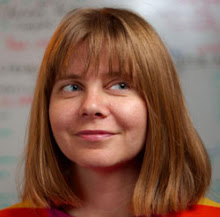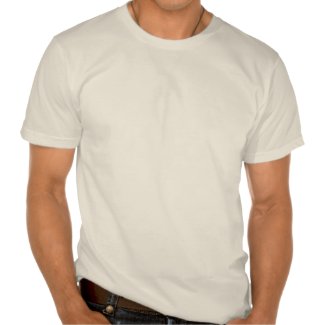 There are cinematic obsessions and there are literary obsessions. Sometimes they mingle in our brains. Tainted, we re-read with movies in our heads, yet while watching movies, we are haunted by the ghosts of the books which have been sliced and diced in the production. I've dwelt on some of my literary adaptation obsessions before--Hamlet, Wuthering Heights, Pride and Prejudice-- and I daresay I'll talk about them again in future. That won't prevent me from harping on them today.
There are cinematic obsessions and there are literary obsessions. Sometimes they mingle in our brains. Tainted, we re-read with movies in our heads, yet while watching movies, we are haunted by the ghosts of the books which have been sliced and diced in the production. I've dwelt on some of my literary adaptation obsessions before--Hamlet, Wuthering Heights, Pride and Prejudice-- and I daresay I'll talk about them again in future. That won't prevent me from harping on them today.There have been 21 adaptations of Jane Eyre, including one currently in production for release next year. As always when a new adaption comes out, one looks back at what has been and wonders why we need another. With Jane Eyre, most the actresses who've played the title part have been great, always laboring to look less pretty than they are in frumpy center-part hair-dos. The Rochesters on the other hand. . . the Rochesters! A Jane Eyre is only as good as its Rochester.
Rochester, we know from the book, is supposed to be plain, as well as shortish, broad-chested, and hairy with an uneven temper and a tendency toward incivility. He is often depicted in illustrations as looking a bit like, well, Wolverine from X-Men. (Invariably Rochester has awesomely big mutton chops, which is one of the things that keeps me coming back to adaptations of Jane Eyre.) Jane, with her artist's
 sensitivity to shape describes him as a solid square block. I've wracked my brain to think of an actor that fits this description and the best I can come up with is perhaps a young Edward G. Robinson. (Well he has the right first name, at least). That is not to say the a pretty, tall, blond, affable American can't try to play Rochester, but he will probably fail as badly as William Hurt did in 1996.
sensitivity to shape describes him as a solid square block. I've wracked my brain to think of an actor that fits this description and the best I can come up with is perhaps a young Edward G. Robinson. (Well he has the right first name, at least). That is not to say the a pretty, tall, blond, affable American can't try to play Rochester, but he will probably fail as badly as William Hurt did in 1996. The first Talkie Rochester was Colin Clive. With a script that pares the story down to a 62 minutes, so little of the original story left here that it's difficult to judge. Clive is surely all wrong: he's congenial and handsome, and when he says he's been living in torment for 15 years his tone of voice seems to say, "it's dashed inconvenient having an insane wife, you know, old sport. Blood curdling screams interrupting house parties and all that." Still, I like Clive because he's obscure and English. He was tormented in his real life, I think. I just wish we got some of it on the screen.
The first Talkie Rochester was Colin Clive. With a script that pares the story down to a 62 minutes, so little of the original story left here that it's difficult to judge. Clive is surely all wrong: he's congenial and handsome, and when he says he's been living in torment for 15 years his tone of voice seems to say, "it's dashed inconvenient having an insane wife, you know, old sport. Blood curdling screams interrupting house parties and all that." Still, I like Clive because he's obscure and English. He was tormented in his real life, I think. I just wish we got some of it on the screen.The 1944 adaptation is often credited to its star, Orson Welles, though it was surely mostly directed by the competent Robert Stevenson. Welles did have a large amount of input on casting and possibly even directing some scenes himself. It is the touchstone adaptation, the one that everyone remembers, and it invented quite a lot of business that wasn't in the novel. One of the screenwriters was Aldus Huxley who had created the buoyant but faithless adaptation of Pride and Prejudice a few years earlier. Huxley invents a famous scene in which Helen Burns, (played by a young Elizabeth Taylor), Jane Eyre's doomed school chum, has her hair cut by the vice-hunting Mr. Brocklehurst. Many subsequent adaptations have had a similar scene. The book includes only a passing remark that the students in the school didn't like him because he starves them, gives long sermons and cuts their hair. I think we should take that to mean that it was required to keep one's hair short, not that he took the time to perform a gruesome public shearing with his own hands while sermonizing about vanity. Yet this visceral scene lives on because it works to visually express the cruelty and near-slavery that Jane experienced in her young life.
 The 1944 version was my introduction to the story and I was disappointed to learn that my favorite line--Welles' raspy, "Jane, would it be so wicked to love me?" --is actually changed from the book. (It's even better in the book because Jane retorts, "No, but it would be to obey you.") The first time I read the novel I was not only surprised by the substantial trimming of the story, but shocked by the fact that the book really is more about the title character than it is about Rochester. Imagine, reader, nearly a hundred pages go by with barely a mention of his name. Joan Fontaine can hardly begin to capture the essence of the character because she simply isn't allowed to do go there. The best Jane scenes from the book are all cut from the adaptation and even her passion for Rochester is watered down. Jane in the book is sorely tempted not to leave after the wedding is interrupted. This wasn't something the film makers could really get into in 1944.
The 1944 version was my introduction to the story and I was disappointed to learn that my favorite line--Welles' raspy, "Jane, would it be so wicked to love me?" --is actually changed from the book. (It's even better in the book because Jane retorts, "No, but it would be to obey you.") The first time I read the novel I was not only surprised by the substantial trimming of the story, but shocked by the fact that the book really is more about the title character than it is about Rochester. Imagine, reader, nearly a hundred pages go by with barely a mention of his name. Joan Fontaine can hardly begin to capture the essence of the character because she simply isn't allowed to do go there. The best Jane scenes from the book are all cut from the adaptation and even her passion for Rochester is watered down. Jane in the book is sorely tempted not to leave after the wedding is interrupted. This wasn't something the film makers could really get into in 1944.The novel's Rochester is funny, generous, playful, capricious, silver-tongued and romantic. He is so much more than the brooding bad boy he's too often mistaken for in pop culture. This is a dude who will throw a huge, month-long house party, at risk of exposing a dread secret to the world at large, cross-dress as a gypsy fortune-teller, and propose marriage to another woman just to find out if his governess really likes him or not. He has style. Orson Welles certainly first captured this dashing quality in Rochester. Welles doesn't try to hide his American accent; he just plays the haughty aspects of the character to the hilt. As Rochester himself would, he dares you find fault with him. I love that he doesn't shy away from the character's many complicated and long speeches, but seems to relish Rochester's talkiness. In still pictures, Welles' soft, boyish beauty bleeds through, but on screen his cigar-chomping swagger and bossiness are the main thing, we notice. He is Rochester because he believes he is and so do we. His confidence is everything.
 George C. Scott, another confident, cigar-chomping American also played Rochester, not long after Roots had invented the American mini-series television format. This was always my father's favorite adaptation, and I half-suspect that is partly because he could pretend he was watching Patton instead of Gothic romance.
George C. Scott, another confident, cigar-chomping American also played Rochester, not long after Roots had invented the American mini-series television format. This was always my father's favorite adaptation, and I half-suspect that is partly because he could pretend he was watching Patton instead of Gothic romance.Because Rochester is an anti-hero it is no surprise that the novel has many references to Macbeth (another role played with panache by Welles). While Rochester is not as bad as Macbeth--as far as we know, there are no murders in his past, just hints of more of a sex life than was generally allowed in novels about decent people in the 19th century--he does have a lot in common with Shakespeare's silver-tongued blackguard. He also has a lot in common with another famous Scottish badboy, the womanizing, James Hepburn, Earl of Bothwell. In the novel, Blanche Ingram compares him to "black Bothwell." It is interesting bit of trivia that Bothwell, had several common law wives, one of them, named "Janet," who was thought to be a witch. Rochester refers to Jane frequently as "Janet" and on more than one occasion teasingly accuses her of witchcraft.
 The sensual side of Rochester, Rochester the lady killer, was best captured by Toby Stephens in the 2006 adaptation. I confess that I totally ripped off the headline for this post from a newspaper story promoting this mini-series adaptation. The script dwells on all those scenes from the novel where Rochester explains sex to Jane, in deeply unnecessary detail. Meanwhile, he goes about in his shirtsleeves and riding boots, pinning butterflies to cardboard and other acts of obvious innuendo and generally being as hot as a guy who was described by his creator as "an ugly man" dares to be. The screenwriter carefully turns the fact that Jane does not find him handsome into a joke. In one scene, which re-writes classic Victorian literature as PG-13 fan fiction, Rochester tries to prevent Jane from running away from Thornfield by pinning her to bed and making out with her. It almost works, but Jane must inevitably sneak away late at night, while lots of female audience members are thinking-- nay, shouting at the screen--"What's a little attempted bigamy, anyway!?"
The sensual side of Rochester, Rochester the lady killer, was best captured by Toby Stephens in the 2006 adaptation. I confess that I totally ripped off the headline for this post from a newspaper story promoting this mini-series adaptation. The script dwells on all those scenes from the novel where Rochester explains sex to Jane, in deeply unnecessary detail. Meanwhile, he goes about in his shirtsleeves and riding boots, pinning butterflies to cardboard and other acts of obvious innuendo and generally being as hot as a guy who was described by his creator as "an ugly man" dares to be. The screenwriter carefully turns the fact that Jane does not find him handsome into a joke. In one scene, which re-writes classic Victorian literature as PG-13 fan fiction, Rochester tries to prevent Jane from running away from Thornfield by pinning her to bed and making out with her. It almost works, but Jane must inevitably sneak away late at night, while lots of female audience members are thinking-- nay, shouting at the screen--"What's a little attempted bigamy, anyway!?" Another too handsome Rochester, was Timothy Dalton in 1983. I find this one the weakest of the longer-form adaptations, because it suffers from bad production values and makes substantial changes to the plot. Yet Dalton is fun to watch and at times his brusque manner makes him almost a little unattractive. Almost. I would probably like the whole thing better if they had given him mutton chops.
Another too handsome Rochester, was Timothy Dalton in 1983. I find this one the weakest of the longer-form adaptations, because it suffers from bad production values and makes substantial changes to the plot. Yet Dalton is fun to watch and at times his brusque manner makes him almost a little unattractive. Almost. I would probably like the whole thing better if they had given him mutton chops. Spend any time with the Cult of Rochester, whose members are fewer but no less ardent then those in the Cult of Darcy, and you will inevitably be led to Michael Jayston, the star of the 1973 BBC adaptation. Though this serial suffers from 70s BEEB production values (funky hair, make-up and costumes; sets and interior lighting more at home in a cubicle farm than a shadowy old house), it has a devoted fan base. It is one of my favorites because of Jayston who wonderfully captures the teasing tone of so much of Rochester's interaction with Jane and allows you to see that he is quite in love with her. Yes, he's blond, lightly built and more civil in his 19th century incivility than your average "perfect gentleman" is nowadays, but Jayston brings dignity to the role, refusing to ham it up. He inhabits the character rather than putting him on to strut around for a few hours, as many actors do. With a script that is practically a transcription of the novel (down to annoying voice-overs that unnecessarily explain what Jane is thinking), he really gets to bring the character to life.
Spend any time with the Cult of Rochester, whose members are fewer but no less ardent then those in the Cult of Darcy, and you will inevitably be led to Michael Jayston, the star of the 1973 BBC adaptation. Though this serial suffers from 70s BEEB production values (funky hair, make-up and costumes; sets and interior lighting more at home in a cubicle farm than a shadowy old house), it has a devoted fan base. It is one of my favorites because of Jayston who wonderfully captures the teasing tone of so much of Rochester's interaction with Jane and allows you to see that he is quite in love with her. Yes, he's blond, lightly built and more civil in his 19th century incivility than your average "perfect gentleman" is nowadays, but Jayston brings dignity to the role, refusing to ham it up. He inhabits the character rather than putting him on to strut around for a few hours, as many actors do. With a script that is practically a transcription of the novel (down to annoying voice-overs that unnecessarily explain what Jane is thinking), he really gets to bring the character to life. So after all this do we need another Jane Eyre? I think we do. In the novel, Rochester goes occasionally goes into fugue-like states while describing his romantic past. He seems transported and talking to creatures that aren't in the room. He is very nearly insane, streching arms out to embrace angels and arguing with invisible witches. Of course, Macbeth sees ghosts (and witches), too. Combine these delusions with his obviously depressed state through much of the novel, and you could make a solid case that there is more than one member of the Rochester clan who is nuts. The 1997 adaptation starring Ciaran Hinds suggested a mentally unstable Rochester, but more often than not Hinds' interpretation came out seeming like a series of wildly inappropriate acting choices. I'd love to see a truly batshit Rochester, played like a manic depressive, perhaps. Also Rochester and Jane talk nearly constantly of fairies, sprites and folk tales. Though the 1944 and 2006 adaptations are mysterious and stylized, I'd love to see an adaptation that was even more over the top in this regard. The upcoming adaptation promises to be so which gives me hope, but I worry that its Rochester, Michael Fassbinder, is probably to blond, chisled and Germanic to be quite right.
So after all this do we need another Jane Eyre? I think we do. In the novel, Rochester goes occasionally goes into fugue-like states while describing his romantic past. He seems transported and talking to creatures that aren't in the room. He is very nearly insane, streching arms out to embrace angels and arguing with invisible witches. Of course, Macbeth sees ghosts (and witches), too. Combine these delusions with his obviously depressed state through much of the novel, and you could make a solid case that there is more than one member of the Rochester clan who is nuts. The 1997 adaptation starring Ciaran Hinds suggested a mentally unstable Rochester, but more often than not Hinds' interpretation came out seeming like a series of wildly inappropriate acting choices. I'd love to see a truly batshit Rochester, played like a manic depressive, perhaps. Also Rochester and Jane talk nearly constantly of fairies, sprites and folk tales. Though the 1944 and 2006 adaptations are mysterious and stylized, I'd love to see an adaptation that was even more over the top in this regard. The upcoming adaptation promises to be so which gives me hope, but I worry that its Rochester, Michael Fassbinder, is probably to blond, chisled and Germanic to be quite right.




